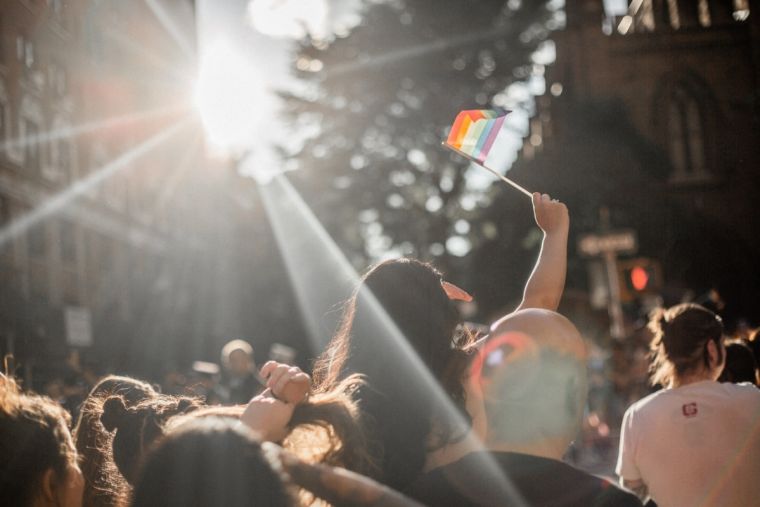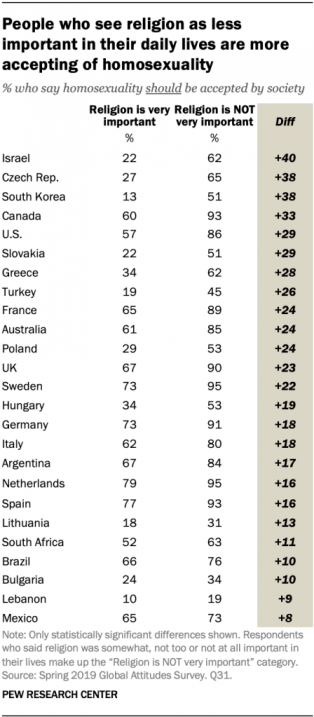Support for homosexuality increases as interest in religion wanes

People who say religion is not important to them are more likely to support homosexuality, new research by Pew has found.
The study analysed the beliefs of over 34,000 people across 36 countries, with the UK having one of the highest levels of support for homosexuality.
The report, released on Thursday, reveals rising support for homosexuality in western European countries, Australia, the US and Canada, where marriage laws have been liberalised in recent years.

The percentage of people in the UK who believe society should accept homosexuality has risen by 10% since 2013, when Pew last asked this question.
In the US, support for homosexuality has risen from 60% to 72% in the last seven years.
The study reveals a correlation between faith and support for homosexuality, with people who see religion as less important in their daily lives being more accepting of it.
Among survey respondents in the UK who said religion was not very important to them, 90% supported homosexuality compared to 67% of those who said religion was very important.
This rose to 93% in Canada, and 95% in both the Netherlands and Sweden among respondents who said religion was not very important. In the US, 86% of non-religious people said society should support homosexuality.
In several western European countries, support was high even among the religious. In Germany, 91% of non-religious people said homosexuality should be supported, compared to 73% of respondents who said religion was very important to them.
Overall, people in Sweden were the most likely to say that homosexuality should be supported by society (94%), followed by the Netherlands (92%) and Spain (89%).
"As it was in 2013, when the question was last asked, attitudes on the acceptance of homosexuality are shaped by the country in which people live," Pew said.
"Those in Western Europe and the Americas are generally more accepting of homosexuality than are those in Eastern Europe, Russia, Ukraine, the Middle East and sub-Saharan Africa. And publics in the Asia-Pacific region generally are split.
"This is a function not only of economic development of nations, but also religious and political
attitudes.
"But even with these sharp divides, views are changing in many of the countries that have been surveyed since 2002, when Pew Research Center first began asking this question.
"In many nations, there has been an increasing acceptance of homosexuality, including in the United States, where 72% say it should be accepted, compared with just 49% as recently as 2007.












